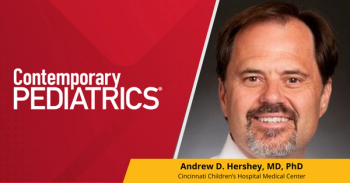
Letters
Letters to the editor of interest to our readers
LETTERS
Pediatricians not trained in using SSRIs
I enjoy reading Contemporary Pediatrics because it is practical and upto-date. I was deeply disturbed, however, by the recent article, "When SSRIs make sense" (January). I think the authors make their best point in the second paragraph, "SSRIs are relatively safe drugs, but psychotherapy delivered by a skilled child psychotherapist is a safer alternative for many children and should be considered for all children and adolescents with psychiatric disorders." Pediatricians are not trained in the diagnosis of psychiatric disorders. Despite the seductively simple symptom-based approach in current vogue, we should not fool ourselves into thinking that making the diagnosis of depression or other mental-health disorders in children is easy or obvious, or a task for a pediatric office visit.
Using SSRIs to treat any mental-health disorder in children goes well beyond "off-label prescribing." The authors state clearly that there are few if any studies in children and that sequelae and side effects are significant, worrisome, and frequent. For instance, they quote a study in which six of 42 children and adolescents treated with SSRIs became acutely suicidal. We would never accept this degree of potential morbidity from an antibiotic used to treat even meningitis!
I am concerned that the "how to" flavor of the article does not sufficiently discourage pediatricians from using SSRIs. That physicians who are not trained in the diagnosis and treatment of mental-health disorders are indeed using these medications in astounding quantitiesin childrendoes not legitimize such use or make it beneficial for the patient.
Lydia Furman, MDCleveland, OH
The authors reply: In writing this article we shared many of Dr. Furman's concerns about pediatricians' using SSRIs and did try to address them. We are not attempting to legitimize pediatricians' use of SSRIs at all.
In an ideal world, all families of children and adolescents with psychiatric disorders would swiftly take their children to an immediately available child psychiatrist who was familiar with the current literature and would provide state-of-the-art treatment. Unfortunately, the great majority of children and adolescents with psychiatric disorders are never going to see a mental-health professional. It is not an ideal world.
Pediatricians who have called and written us with positive remarks about the article describe being the only practitioners in their areas who work with children. In referring patients to child psychiatrists, they may find waiting lists of three to six months to get services, and the nearest child psychiatrist may be hours away. Families may refuse to go to a psychiatrist because they fear being stigmatized or because their insurance covers little or none of the services provided by mental-health providers. These pediatricians have told us they feel their patients cannot wait or go without services, so they must try to manage them as best they can.
Child psychiatry is one of the most underserved medical specialties in the US. There are not enough child psychiatrists or general psychiatrists to provide services for even a simple majority of the children in need of psychiatric care. Given this situation, a major role of child psychiatrists is to provide consultation to primary care providers, who do see most of the children in need of psychiatric care. Our article was meant to offer that bit of consultation. If it left readers feeling cautious about using SSRIs, the article accomplished one of its goals. All of uspediatricians, child psychiatrists, and family practitionersshould have such concerns. SSRI use in children has not been sufficiently researched and is not an entirely benign process. We believe that it is better for pediatricians who use these agents, by choice or circumstance, to have an understanding of SSRIs than to make mistakes because they don't.
Kelda H. Walsh, MDChristopher J. McDougle, MDIndianapolis, IN
False positives in Rotazyme assays
I thoroughly enjoyed reading the Pediatric Puzzler, as always, in the November issue. The association between chitterlings preparation and Yersinia infection in infants was a favorite in my school of public health epidemiology class. I thought one aspect of the case deserved further discussion. The 10-week-old infant who ultimately proved to have Y enterocolitica infection also had a positive Rotazyme test early in the hospital course, leading her doctors to suspect rotavirus as the culprit.
After the Rotazyme ELISA test for rotavirus antigen in feces was introduced, several studies reported false- positive Rotazyme tests in young infants (Rand KH et al: AJCP 1985; 84[6]:748, and Krause PJ et al: J Pediatr 1983;103:259). Subsequent studies of the updated Rotazyme II raised similar concerns (Prey MU et al: Am J Clin Pathol 1988;89[5]:657; Cromien JL et al: J Clin Microbiology 1987; 25[12]:2359; and Thomas EE et al: J Clin Microbiology 1988;26[6]:1189). Other rotavirus assays have had false- positive results attributed to bloody stools (Brink N et al: J Clin Pathol 1992;45[5]:460 and Bendall RP et al: J Clin Pathol 1991;44:609).
Did the authors conclude that the patient's positive Rotazyme was a false positive? If so, do they attribute the result to the poor specificity of Rotazyme in this age group in general, or do they think the infectious enterocolitis affected the test result?
George K. Siberry, MD, MPHWilmington, DE
The authors reply: We appreciate Dr. Siberry's careful reading of our Puzzler. He raises an interesting question about the possibility of a false-positive result of the Rotazyme assay. It would have been difficult to determine whether this result was a false positive or reflected a coexisting infection. That said, the positive Rotazyme in this case of a septic-appearing infant did not affect our course of management.
Deborah Moss, MDLeslie Borsett-Kanter, MDPittsburgh, PA
Iris Rosendahl. Letters. Contemporary Pediatrics 2000;4:19.
Newsletter
Access practical, evidence-based guidance to support better care for our youngest patients. Join our email list for the latest clinical updates.








